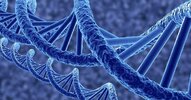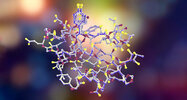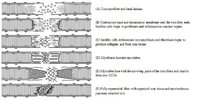Genetics plays a significant role in muscle growth and development.

Here's a brief overview:
1. Muscle Fiber Types: Genetics influence the distribution of muscle fiber types in your body. Some people naturally have a higher percentage of fast-twitch muscle fibers, which are associated with explosive strength and muscle growth, while others have more slow-twitch fibers, which are geared towards endurance.

2. Response to Training: Genetics also affect how your body responds to resistance training and exercise. Some individuals may experience faster muscle growth and strength gains due to their genetic predisposition, while others may progress more slowly.

3. Hormone Levels: Genetic factors can influence your hormone levels, including testosterone and growth hormone, which play key roles in muscle growth. Variations in hormone levels can impact muscle-building potential.

4. Recovery and Repair: Genetic factors can affect your body's ability to recover from exercise and repair muscle tissue. Some people naturally recover more quickly, allowing for more frequent and intense workouts.

While genetics play a role, it's important to note that hard work, proper nutrition, and consistent training can still lead to significant muscle growth for most individuals. Genetics may set a baseline, but lifestyle choices and training strategies can help maximize your muscle-building potential.

Here's a brief overview:
1. Muscle Fiber Types: Genetics influence the distribution of muscle fiber types in your body. Some people naturally have a higher percentage of fast-twitch muscle fibers, which are associated with explosive strength and muscle growth, while others have more slow-twitch fibers, which are geared towards endurance.

2. Response to Training: Genetics also affect how your body responds to resistance training and exercise. Some individuals may experience faster muscle growth and strength gains due to their genetic predisposition, while others may progress more slowly.

3. Hormone Levels: Genetic factors can influence your hormone levels, including testosterone and growth hormone, which play key roles in muscle growth. Variations in hormone levels can impact muscle-building potential.

4. Recovery and Repair: Genetic factors can affect your body's ability to recover from exercise and repair muscle tissue. Some people naturally recover more quickly, allowing for more frequent and intense workouts.

While genetics play a role, it's important to note that hard work, proper nutrition, and consistent training can still lead to significant muscle growth for most individuals. Genetics may set a baseline, but lifestyle choices and training strategies can help maximize your muscle-building potential.
